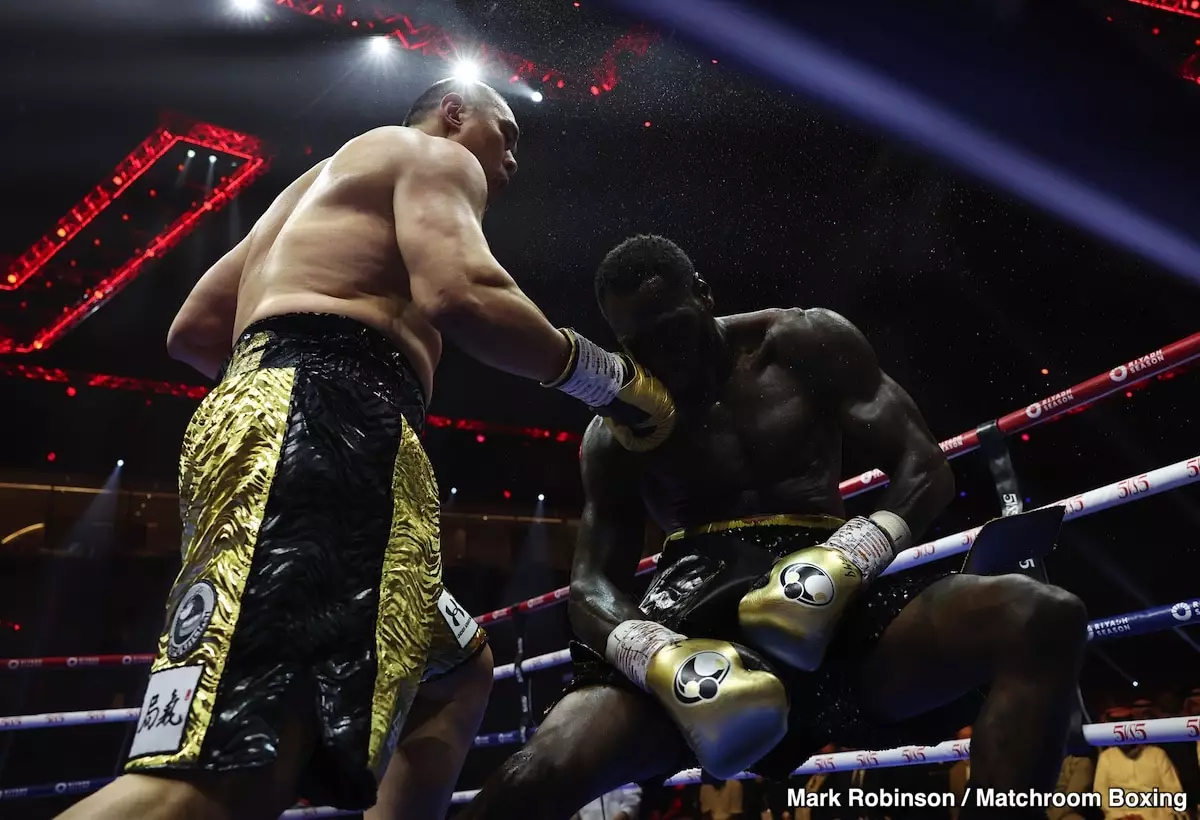In the world of professional boxing, the balance between talent, determination, and effective coaching cannot be underestimated. Recently, Derek Chisora made headlines by publicly criticizing Deontay Wilder’s transformation under the coaching of Malik Scott, claiming that Wilder has shifted from a formidable “lion” to a “cat” since they began collaborating in 2021. Chisora, a seasoned heavyweight himself, argues that this change has not only compromised Wilder’s performance but has also undermined his identity as a fighter. In the realm of sports, an athlete’s persona is intricately woven into their performance; hence, when that persona shifts due to the influence of coaching, the implications can be profound.
Wilder’s record of 1-2 since teaming up with Scott is telling. The heavyweight champion appears to have lost not just fights, but also the essence of his fighting style. Many fans and analysts have observed that Wilder, renowned for his explosive right hand and knockout power, now seems hesitant, often circling opponents without throwing significant punches. This passive approach has led to unexpected losses, such as the one against Joseph Parker, a fighter who previously struggled against more adept opponents. Chisora’s emphasis on Wilder’s lack of aggression paints a stark picture of a once-dominant champion reduced to merely surviving in the ring.
Deontay Wilder’s situation raises broader questions about the responsibilities and ethics of coaching. Coaches play a pivotal role in shaping an athlete’s career, not just strategically, but psychologically as well. Malik Scott’s influence on Wilder has sparked debate about whether a coach can inadvertently stifle a fighter’s inherent capabilities. Critics, like Chisora, assert that Scott has failed to instill in Wilder the competitive hunger that is essential for success at the highest levels of boxing.
Chisora voiced his frustrations directly, stating that he urged Wilder to part ways with Scott. His critique suggests a perspective within the boxing community that values not only technical skills but also the psychological aspects of fighting—assertiveness, courage, and the indomitable will to win. The idea that training should cultivate these traits is paramount, and if Scott is not fostering that competitive drive, then his position as Wilder’s trainer is called into question.
An intriguing dimension of this narrative is the notion of wealth and its effect on a fighter’s motivation to strive for excellence. Chisora noted that Wilder’s financial security could dull the urgency to reclaim his past glory. While it is a relief to athletes to have financial stability, it can lead to complacency, particularly in a sport that thrives on fierce competition and relentless determination. Wilder’s substantial earnings allow him a safety net that many others lack, but this very comfort could hinder his desire to reclaim the lion’s mentality.
Wilder’s losses have been surprising, particularly when the expectations surrounding his performances suggested otherwise. He was touted as a favorite against opponents like Parker and Zhilei Zhang, only to underperform. This raises another crucial point: the psychological impact of wealth may lead to a disconnect between the fighter’s expectations and his reality inside the ring. A fighter motivated by financial concerns rather than a passion for the sport can easily become disengaged, leading to lackluster performances and unexpected outcomes.
As Wilder approaches his 39th birthday, the window for reclaiming his career as a heavyweight contender narrows. Chisora’s remarks reflect a sense of urgency for Wilder to reassess his choices, particularly in regard to his coaching situation. Historically, athletes who undergo significant changes to their training teams often see revitalized performances. Yet, the clock is ticking for Wilder, and the risk of clinging to an ineffective system places his career in jeopardy.
Particularly, the ability to adapt and evolve is essential for success in boxing. Numerous champions have utilized experienced coaches with proven track records to find their way back to the top. If Wilder does not take action soon, he may risk solidifying his reputation as a fighter who once had the world at his feet but let it slip away due to the influence of the wrong coach.
The story of Deontay Wilder serves as a cautionary tale for all athletes. It is a reminder of the delicate interplay between coaching, identity, motivation, and performance. Chisora’s critique offers not only insight into Wilder’s struggles but also a broader reflection on the necessary qualities that athletes must possess to thrive in a competitive environment—qualities that have appeared conspicuously absent in Wilder’s recent outings. The time for change may be counting down, and only Wilder can decide the direction his career will take.

